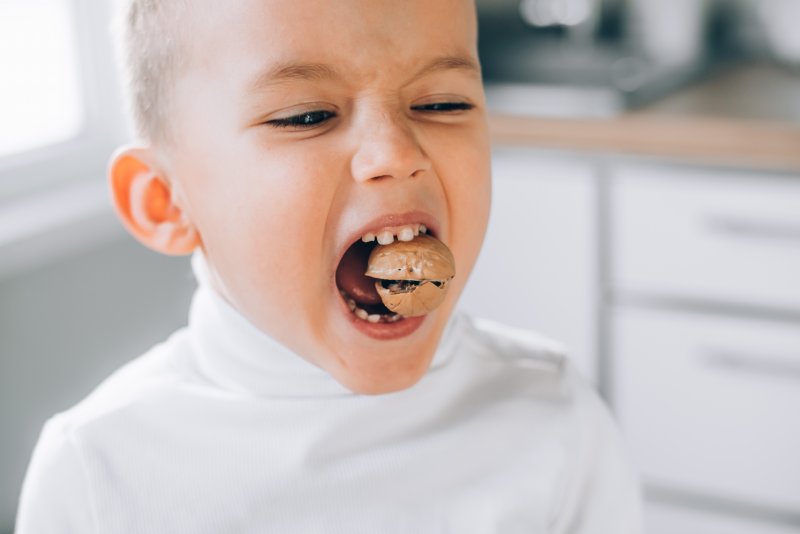
Movies just aren’t the same without popcorn—whether you’re at home on the couch or sitting in a packed theater, you can’t fully enjoy the film you’ve chosen without a big bowl of your favorite buttery snack. However, popcorn and some other foods actually pose a threat to your teeth! If you’re not careful, you could end up with a chipped or cracked tooth that warrants a trip to the dentist’s office. To avoid that, here are some foods that you should give extra consideration.
What Foods Should I Avoid?
Some common foods that could potentially chip or crack your teeth include:
- Popcorn (un-popped kernels)
- Corn on the cob
- Ice cubes
- Hard candy like lollipops or jawbreakers
- Nuts with hard outer shells (like peanuts, pistachios, and sunflower seeds)
- Pits (from cherries, peaches, olives, etc.)
- Bones (from chicken wings, fish, etc.)
- Hard bread and nutrition bars
It would be difficult, and even a little tragic, to spend most of your life steering clear of these foods. Enjoying them in moderation without injuring yourself is the goal. Always look before you bite, and chew slowly when consuming these items. If something problematic is present, you’ll hopefully catch it before it comes in contact with your teeth.
What Should I Do If I Chip My Tooth While Eating?
If you can’t help yourself and simply must enjoy some of these foods, know that a chipped or cracked tooth usually results in a trip to the dentist. If it happens, it is imperative that you stop eating and call your dentist immediately before additional damage is done. Your dentist will want to know how the tooth was fractured, so be honest—it is not an admission of guilt!
If the injury extends below the gumline and is causing you a lot of pain or discomfort, it will need to be handled immediately. However, minor cracks and chips are typically not as urgent, and over-the-counter painkillers, rinsing with warm water, and applying a cold compress can provide relief while you’re waiting to get the tooth repaired.
You shouldn’t have to reevaluate your entire life and diet in order to avoid some of these foods—but a little extra caution now can save you a lot of trouble down the road.
About the Author
Dr. Luke Lumpkin received his DDS from the University of Oklahoma College of Dentistry in 2006 and has practiced dentistry in his home state for over a decade. He is currently a member of the American Dental Association, the Academy of General Dentistry, and the American Academy of Sleep Dentistry. His practice offers many services, including preventive, restorative, cosmetic, and emergency dentistry. If you or a loved one is currently dealing with a chipped tooth, be sure to reach out for help. Dr. Lumpkin can be contacted via his website or (918) 336-6777.
